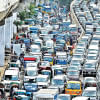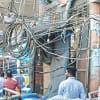Dhaka—the second most polluted capital city
A jointly-prepared report by Greenpeace and Airvisual recently unveiled the 2018 Air Quality Report on March 5 and in it, Dhaka has featured as the second most polluted capital city in the world. This report reinforces an earlier report published in September 2018 by the US-based Environmental Protection Index (EPI) on the performance of governments in 180 countries in combating pollution.
Bangladesh has slipped down 40 places between the years 2010 and 2018 and 56 percent of air pollution has been attributed to brick kilns. Though the government enacted a law in 2018 to make brick kilns more environment-friendly, more than a quarter of the 7,772 brick kilns in the country do not make that grade, and this is where more stringent enforcement will be needed.
Looking beyond brick kilns, we must contend with vehicular emissions, industrial activities, construction work and poor waste management—all of which increase the PM2.5 level, i.e. the level of airborne particles which damage the respiratory system causing various vascular diseases. While it is easy to enact laws, what has been missing is the enforcement of those laws. The report ought to serve as a wakeup call, given the increasing risks of air pollution on public health. We need action by regulatory authorities to clamp down on polluters because the cost of inaction results in premature deaths of thousands of people. As pointed out in the report, globally, "every hour, 800 people are dying, many after years of suffering from cancer, respiratory illnesses or heart disease caused by breathing polluted air."

 For all latest news, follow The Daily Star's Google News channel.
For all latest news, follow The Daily Star's Google News channel. 








Comments